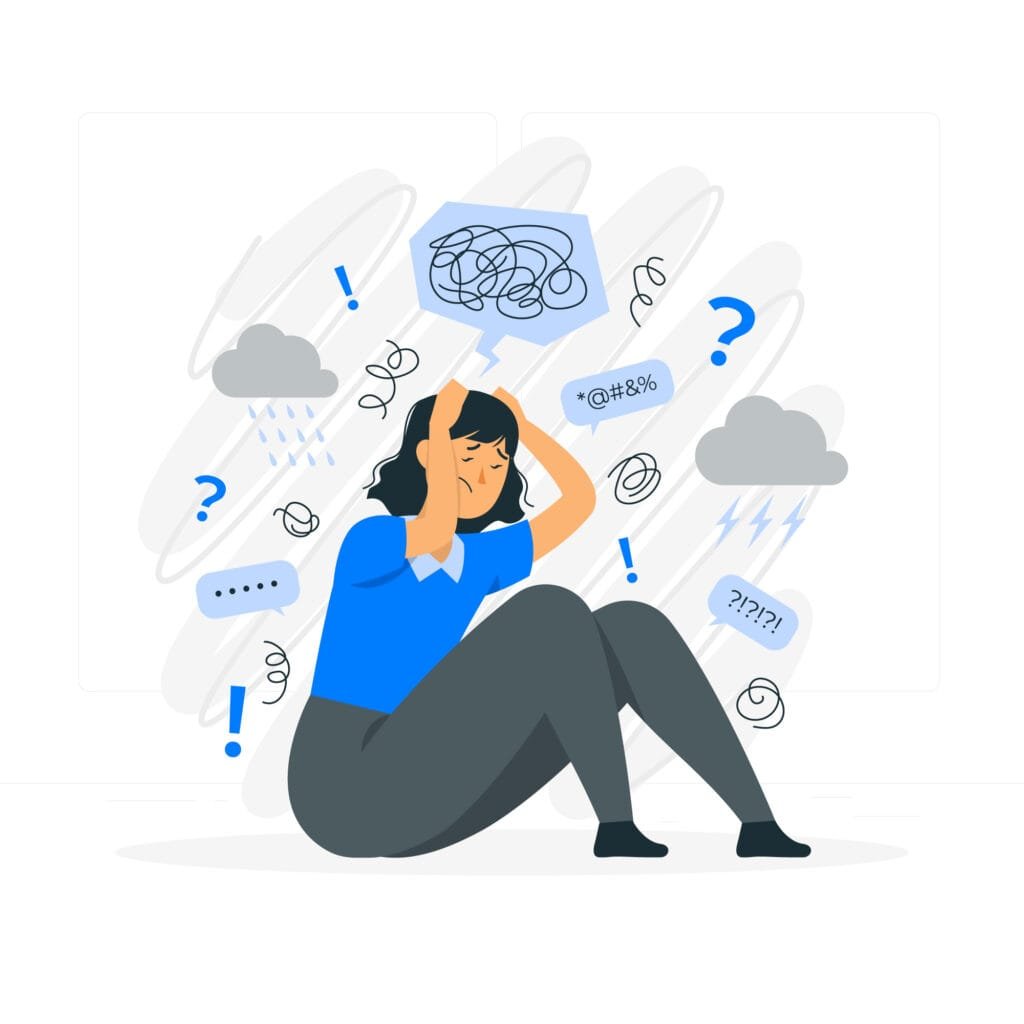Have you ever found yourself tossing and turning in bed, unable to sleep, consumed by thoughts of your job? Do you often feel like the weight of your workplace is bearing down on you, both mentally and physically? Have you ever wondered how your job might be affecting your overall well-being?
Work stress is a complex and pervasive issue that touches the lives of countless individuals, and in this blog, we will unravel its many facets. We’ll explore what occupational stress, how to recognize it, what factors contribute to it, and most importantly, how it silently influences your mental and physical health. So, let’s dive into this topic, where you just might find answers to the questions that have been lingering in your mind.
What is Stress?
To understand the implications of work stress, it’s essential to comprehend stress in general. Stress is your body’s natural response to challenging situations. It’s a survival mechanism that triggers the release of stress hormones, such as cortisol and adrenaline, when you encounter perceived threats or pressure. But what happens when the source of stress is your workplace?
What is Work Stress?
Work stress, also known as occupational stress, is a specific type of stress caused by the demands, pressures, and expectations of one’s job. It can be triggered by a multitude of factors, and its effects can be both short-term and long-term. Let’s take a closer look at the characteristics of work stress:
- Unrealistic deadlines and high workloads
- Lack of control over your tasks and decisions
- Conflicts with coworkers or superiors
- Job insecurity
- Long working hours
- Monotonous or unfulfilling tasks

Identifying Work Stress
Are you experiencing Professional burnout? To find out, ask yourself these questions:
- Do you constantly feel overwhelmed by your workload?
- Does the thought of work make you anxious or irritable?
- Are you losing sleep over work-related issues?
- Do you experience physical symptoms like headaches, muscle tension, or digestive problems when thinking about work?
If you answered “yes” to any of these questions, you might be dealing with work stress.
Factors Affecting Work Stress
Workload stress isn’t one-size-fits-all. It’s influenced by a combination of factors, including:
- Job demands: High workloads, unrealistic expectations, and tight deadlines can contribute to stress.
- Lack of control: When you feel powerless in your job, it can lead to increased stress.
- Work relationships: Conflicts with colleagues or superiors can be a major stressor.
- Job security: Fear of losing your job or job instability can weigh heavily on your mind.
- Work-life balance: When duty seeps into your personal life, it can intensify stress.
Overcoming Work Stress
The good news is that job pressure is not unbeatable. There are several strategies you can employ to overcome it:
- Time management: Organize your tasks and set priorities to manage your workload effectively.
- Communication: Open and honest communication with colleagues and superiors can help resolve conflicts.
- Seek support: Talking to friends, family, or a therapist can provide emotional support and coping strategies.
- Establish boundaries: Create a clear separation between work and personal life.
- Self-care: Engage in activities that promote relaxation and well-being, such as exercise, meditation, or hobbies.
The Mental Impact
Work stress may have a profound impact on your mental health. It may lead to symptoms like anxiety, depression, and burnout. The constant pressure and worry can erode your self-esteem and overall satisfaction with life. Moreover, it can affect your cognitive abilities, making it challenging to concentrate and make decisions.
The Physical Impact
The toll of work stress is not limited to your mind; it may extend to your body. Prolonged stress may lead to physical health issues such as:
- Cardiovascular problems: High blood pressure and increased risk of heart disease.
- Gastrointestinal issues: Digestive problems, irritable bowel syndrome, and ulcers.
- Musculoskeletal pain: Tension in muscles, leading to headaches, back pain, and more.
- Weakened immune system: Increased susceptibility to illness
Work stress is a pervasive issue that may have far-reaching consequences on your mental and physical health. Therefore, recognizing the signs of work stress, understanding its underlying factors, and adopting coping mechanisms are crucial steps in overcoming its challenges. Moreover, it’s essential to prioritize your well-being and take steps to reduce work stress to lead a healthier, more fulfilling life.

